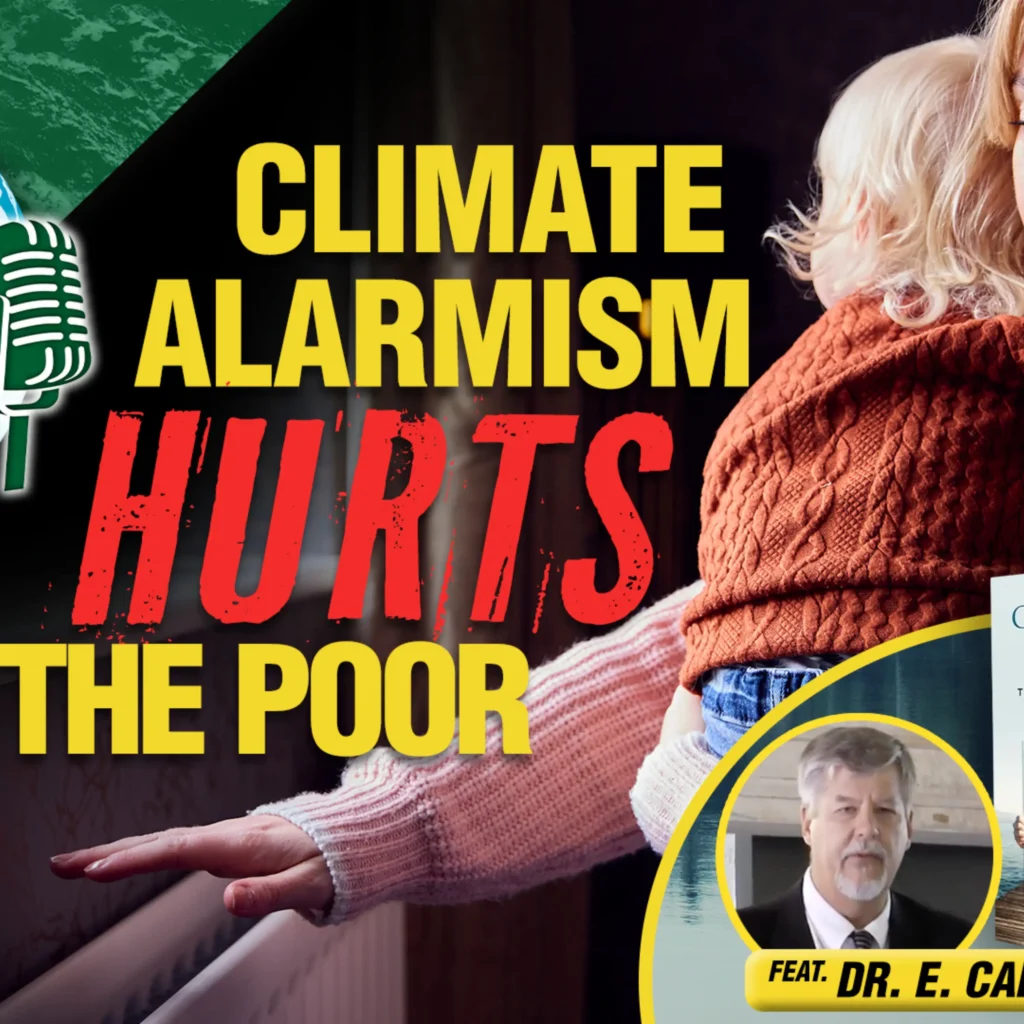“People here have no jobs,” Mark Fenn admitted, after taking documentary producers on a tour of his $35,000 catamaran and the site of his new coastal home. “But if you could count how many times they smile in a day, if you could measure stress”–and compare that to “well-off people” in London or New York–“then tell me, who is rich and who is poor?”
Fenn is coordinator of the World Wildlife Fund’s campaign against a proposed mining project near Fort Dauphin, Madagascar. The locals strongly support the project and want the jobs, improved port, sustained development, and improved living standards and environmental quality this state-of-the-art operation will bring. No wonder.
People there live in abject poverty, along dirt roads, in shacks with dirt floors, barely able to afford food on their $1,000-a-year average income. There is little electricity and no indoor plumbing. The area’s rainforest has been destroyed for firewood and slash-and-burn agriculture. People barely eke out a living.
Hypocritical Activists
But Fenn claims the mine will change the “quaint” village and harm the environment. He says he feels “like a resident,” his children “were born and raised” there, and the locals “don’t consider education to be important” and would just spend their money on parties, jeans, and stereos.
Actually, Fenn lives 300 miles away and sends his children to school in South Africa. And the locals hardly conform to his insulting stereotypes. “If I had money, I would open a grocery store,” said one. “Send my children to school,” start a business, become a midwife, build a new house, said others.
Economic Growth Needed
You have to see the film, Mine Your Own Business, to fully grasp the callous disdain these radical activists have for the world’s poor. That’s certainly the reaction audiences had after seeing it May 30 on Capitol Hill in Washington.
Fenn’s demeaning and somewhat racist statements perpetuate human misery.
These enemies of the poor say they are “stakeholders” who want to “preserve” indigenous people and villages. They never consider what the real stakeholders want–the people who actually live in these impoverished communities and must endure the consequences of harmful environmentalist campaigns that are being waged all over the world–from Europe to Africa, Latin America, Asia, and the United States.
The WWF, Greenpeace, Oxfam, Sierra Club, Rainforest Action Network, and other multinational activist corporations battle against mines in Romania, Peru, Chile, Ghana, and Indonesia; electricity projects in Uganda, India, and Nepal; biotechnology that could improve farm incomes and reduce malnutrition in Kenya, India, Brazil, and the Philippines; and DDT that could slash malaria rates all over Africa, where it kills 3,000 children every day.
Activists Spreading Lies
When my son and some friends brought two tons of biotech food to impoverished families near Cancun, Mexico, Friends of the Earth protesters told the villagers the corn was poisonous. The radicals didn’t acknowledge that Americans eat the same corn every day–and they didn’t bring one peso in aid for the people whom they were deceiving into passing up free food.
They harp on speculative dangers of technology, and they ignore the real, immediate, life-or-death dangers that modern mining, development, and technology would prevent. They never mention the jobs, clinics, schools, roads, improved housing, and small business opportunities these economic activities make available–or the electricity, refrigeration, safe water, better nutrition, reduced lung and intestinal disease, and fewer deaths of children.
The activists pervert “sustainable development” to mean no development, and they ignore how mines lay the foundation for modern schools, hospitals, libraries, and businesses that can sustain prosperity and better living standards for generations.
Economic Development Needed
Agitators use global warming and “corporate social responsibility” to force companies to acquiesce to their agendas–and ignore human rights to energy and technology and people’s desperate cries for a chance to take their rightful place among the Earth’s healthy and prosperous people.
The activists promote the placing of little solar panels on huts, but they never advocate supplying enough electricity to help communities emerge from poverty and disease.
They extol the virtues of micro credit, to support minimal family enterprises, and they demand debt forgiveness and more foreign aid for corrupt dictators. But they oppose economic development that would eliminate the need for more international welfare.
They blame Newmont Mining for accidents that killed five people over a two-year period in Ghana, but they refuse to acknowledge their policies and pressure campaigns cause millions of deaths every year.
U.S. Not Immune
Such environmental injustice is prevalent here in the United States, too.
A few years ago, the poor, mostly black community of Convent, Louisiana welcomed plans for a $700 million plastics factory that would bring good construction and permanent jobs, health benefits, a stronger tax base, and better schools. More than 70 percent of the residents wanted it. But the Sierra Club and a Tulane University group claimed the high-tech plant would pollute and cause cancer.
In fact, cancer rates would have gone down, because residents would have had better nutrition and regular medical check-ups. But the radicals won, the plant wasn’t built, and residents still work menial jobs for minimum wages in sugarcane fields.
Technology’s Real-World Benefits
Yes, there are environmental impacts from mines, dams, and other development. They change lives and communities. There are health and other risks.
But those changes also came with the Industrial Revolution. Are we worse off for it? Would we prefer to return to the jobs, lifestyles, and living standards of pre-industrial, pre-electrical America–when cholera and malaria were ever-present, and the average life expectancy was 45?
Would any of the greens, who clamor to keep the world’s poor “indigenous” (and thus impoverished, energy-deprived, and diseased) care to live that lifestyle for even one month?
This intolerable situation cannot continue, and people of conscience must no longer remain silent.
Roy Innis ([email protected]) is national chairman of the Congress of Racial Equality (CORE). This article first appeared in Townhall.com, and is reprinted with permission.



